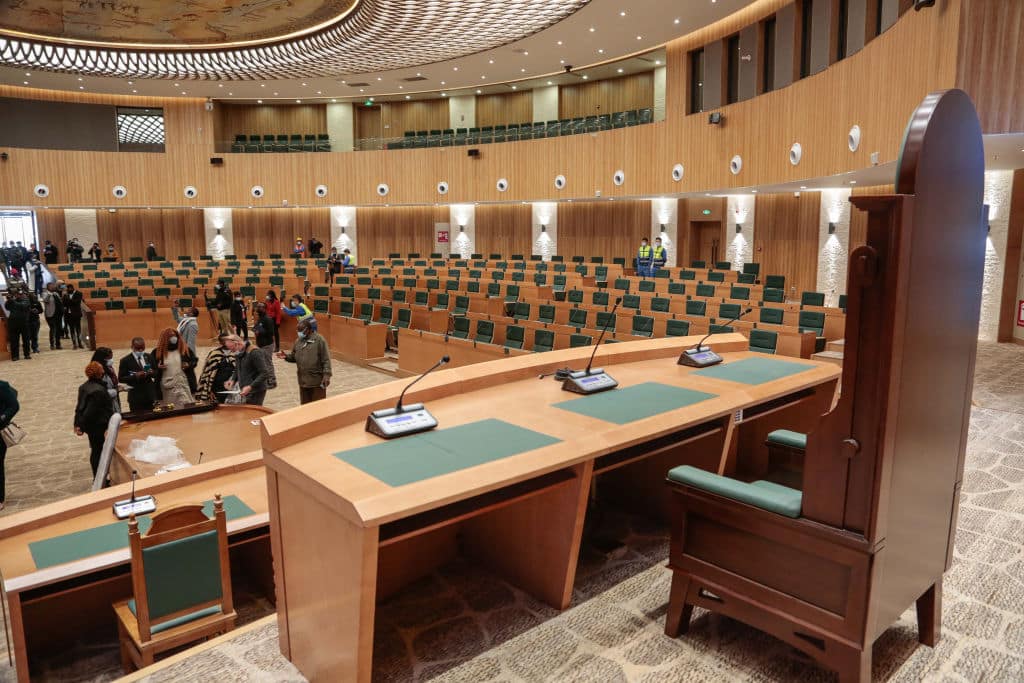Zimbabwe’s Parliament recently passed the controversial Patriotic Bill, raising concerns about its impact on democratic freedoms and international relations. Critics argue that the law, which penalizes actions seen as undermining national interests, curtails freedom of speech, association, and assembly, and could isolate Zimbabwe on the global stage.
Zimbabwe’s Parliament passed the controversial Patriotic Bill into law on the evening of March 31, 2023. President Emmerson Mnangagwa’s ruling Zanu-PF government has long sought to enact this bill, claiming it strengthens aspects of the criminal code protecting national interests. However, critics within and outside Zimbabwe view it as one of the most oppressive laws yet, intended to stifle criticism and free speech, particularly during a sensitive time as the country approaches general elections in late August.
The Bill was first proposed after the controversial 2018 general elections, which saw Mnangagwa elected amidst contested results and protests that resulted in at least six fatalities, seemingly in response to opposition to Mnangagwa’s rule.
Broadly, the Bill criminalizes actions deemed to “willfully damage the sovereignty and national interest of Zimbabwe”. These include, among other offenses, planning state boycotts, sanctions, or any acts deemed as ‘subversion’ of the state. Penalties for these transgressions include deprivation of citizenship and possibility of the death penalty, which the government had previously committed to repealing (REF).
Activists, journalists, and civil society organizations have denounced the passing of the Bill as another act by the ruling Zanu-PF under Mnangagwa to repress free speech and opposition, particularly as the country moves toward the upcoming general elections.
Loading...
A risk and political analyst who specializes in sub-Saharan Africa, Marisa Lourenco believes that critics of the bill have a point. “Since the dawn of independence in Zimbabwe has been guided by principles of authoritarianism rather than any effort towards democracy…” says Lourenco to FORBES AFRICA. “Not only does it give the government more tools with which to suppress the opposition and civil society with its vague clauses—which nations are hostile, for example, is there a defined list?—but it also seems to be a way for the Mnangagwa administration to control the narrative around its performance as the government attempts to get some of its debt pardoned and access international financial markets.”
A cooperative of civil society members, including the Media Alliance of Zimbabwe, Zimbabwean Congress of Trade Unions, and the Zimbabwean Election Support Network, issued a media statement opposing the bill’s passage.
“A very sad day for Zimbabwe today as that country’s parliament has passed the Patriot Act bill into law,” tweeted prominent Zimbabwean journalist Hopewell Chin’ono. “It seeks to destroy freedom of association and assembly. Free speech is now dead, and any Zimbabwean holding a meeting with a foreign government official will be jailed.”
The primary opposition party, the Citizens’ Coalition for Change (CCC), was similarly critical. “Democracy is in distress as a report from Parliament confirms that the Patriotic Bill, which is considered unlawful and perilous, has been approved after amending the Criminal Code,” tweeted the party’s official account.
The ruling Zanu-PF and President Mnangagwa originally took power in 2017 during a military coup that ousted long-reigning Robert Mugabe.
The country currently scores 28/100 regarding political rights and civil liberties among countries worldwide, according to research organization Freedom House. On Tuesday afternoon, Zimbabwe summoned a top United States diplomat over a tweet the official US Embassy Zimbabwe account posted, encouraging citizens in the country to register to vote.
“We are likely to see heavy-handedness [from the state] and also the banning of demonstrations, disruption of opposition campaigns, etc,” continues Lourenco on the upcoming elections. “Having said that, widespread political and social instability is unlikely. I also expect voter turnout to be the lowest in post-independence
Zimbabwe. People have lost all faith in a ZANU-PF-led government to effect any kind of real change, and the hope that accompanied Mnangagwa’s ascension to the presidency faded soon after the 2018 elections and has been completely snuffed out by now.”
The bill’s passage, say experts, seems to align with protecting the ruling party ahead of the elections on August 28.
June 2 was the last day for citizens to register to vote. A report earlier this year by electoral advocacy group Team Pachedu flagged evidence of the Zimbabwean Electoral Commission’s (ZEC) delimitation report for signs of gerrymandering, among other irregularities.
Questions are being raised anew about whether the Patriotic Bill will hamper further critique of the ruling Zanu-PF in the run-up to what is likely to be a strongly-contested election, and whether it might be used to suppress the media and reporting of the event.
Loading...
